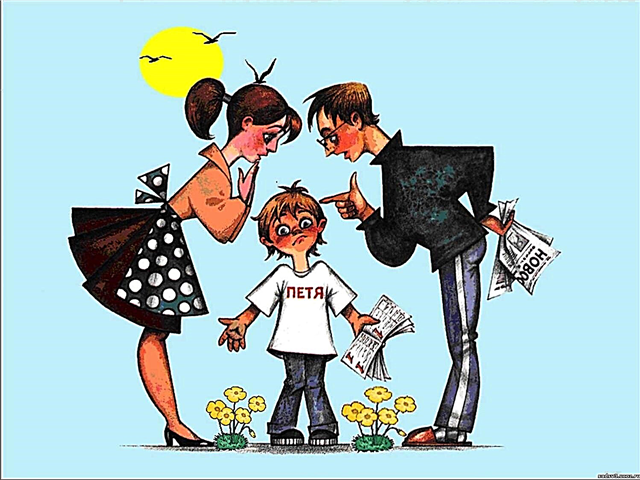
At the age of 8, the active development of the brain and endocrine system continues, permanent teeth appear, bones become stronger, and due to schoolwork, the load on the eyes, nervous system and spine increases. What vitamins are especially important at this age, can they be obtained only from food, and also what complex vitamin preparation is best for an 8-year-old child?
Vitamins are essential substances for every person to maintain their health. But in childhood, their lack can cause developmental delays and various diseases.

Eight-year-old children are actively growing, learning and developing, so they need the following vitamins and minerals:
- For normal bone growth and their strength, the child must receive vitamins D and A, as well as phosphorus, B vitamins and, of course, calcium.
- Adequate intake of vitamin C with food or supplements is most important for the prevention of frequent colds and support of the immune system. Vitamins B9, PP, E and A are also needed for the immune system.
- So that the 8-year-old's eyesight does not suffer from prolonged stress at school and when doing homework, the child should receive enough vitamin A and beta-carotene. Vitamins B2, C and E are also important for eye health.
- Vitamins of group B are called upon to support the nervous system, on which an eight-year-old child has a significant load. Your child also needs omega fats and minerals such as iodine, zinc and selenium to increase energy levels, concentration, memory and performance.
In order for parents to understand whether a student has enough vitamins that are contained in foods or preparations, they should know their daily requirement for an eight-year-old child:
Indications
Prescription of complex vitamin supplements at the age of 8 is justified in such situations:
- For the prevention or elimination of overwork.
- With increased sports loads.
- With an unbalanced diet.
- With poor appetite.
- During the seasonal decrease in vitamins in food.
- With stunted growth.
- After antibiotic therapy.
- When living in an unfavorable ecological environment.
Contraindications
The reason to refuse the use of a vitamin complex by an 8-year-old child may be:
- Hypersensitivity to any ingredient in the supplement.
- Hypervitaminosis A or D.
In addition, it is important to carefully select vitamins if the child has diseases of the digestive tract, kidneys, endocrine system organs, allergies, metabolic disorders, diabetes and other serious diseases.

Should I use to strengthen the immune system?
The load on the immune system of an 8-year-old child is quite high, since the child not only communicates a lot with other children and adults, but also spends a lot of energy on lessons and extracurricular activities. In order to increase the body's defenses, it is important for a schoolchild to get enough vitamins C, E, A and D. You can strengthen immunity by using special vitamin supplements, for example VitaMishki Immuno + or Multi-tabs Immuno Kids.
For information on which vitamins improve immunity, see the program of Dr. Komarovsky.
Release forms
Vitamins that can be recommended for an 8-year-old child come in the form of chewable lozenges, coated tablets, capsules, sweet gel, lozenges or syrup. Also, many vitamin preparations are produced in ampoules for injection. Such drugs are prescribed for hypovitaminosis for treatment, and for prophylactic purposes, chewable vitamins are most often bought for 8-year-olds.
What vitamins are better for giving: a review of popular
The most demanded and popular for 8-year-old children are such vitamin complexes:
Nutritional adjustments as an alternative
If parents are thinking about vitamins for an 8-year-old child, then first of all it is necessary to change the student's diet, since the child's body receives most of the vitamins from food. If the eight-year-old's menu is balanced, this will prevent vitamin deficiencies and help avoid buying drugstore complexes. For this, the diet of children of this age must necessarily include:
- Various vegetables.
- Dairy.
- Vegetable oil.
- Cereals and bread.
- Different types of berries and fruits.
- Meat, offal and poultry.
- Fish and seaweed.
- Legumes.
- Butter.
- Nuts.
Read about proper nutrition for a student in another article. Learn about your child's dietary needs and how to make a menu for the week.

Komarovsky's opinion
The famous doctor confirms the value of vitamins for the child's body and is sure that without their sufficient intake, the student will not be able to develop and learn normally. At the same time, Komarovsky advises paying attention not to pharmacy supplements, but to the balance and variety of the children's menu. Buy complex vitamins, according to the pediatrician, should only be in case of hypovitaminosis, and not at all for the purpose of prevention. You will learn more about this by watching the program of Dr. Komarovsky.
Tips
- Younger students should only buy vitamin supplements for their age. It is unacceptable to give an 8-year-old child vitamins for adults or complexes for adolescents.
- Before buying a vitamin preparation, it is best to talk about choosing the most optimal option with a pediatrician who is familiar with the history of the child's development, will be able to assess his health status and possible contraindications.
- It is worth purchasing vitamins for an 8-year-old child at a pharmacy. It is best to opt for the products of a well-known manufacturer, which has already gained a positive reputation.
- Remember that most vitamin supplements are tonic, so try not to give it in the afternoon.



